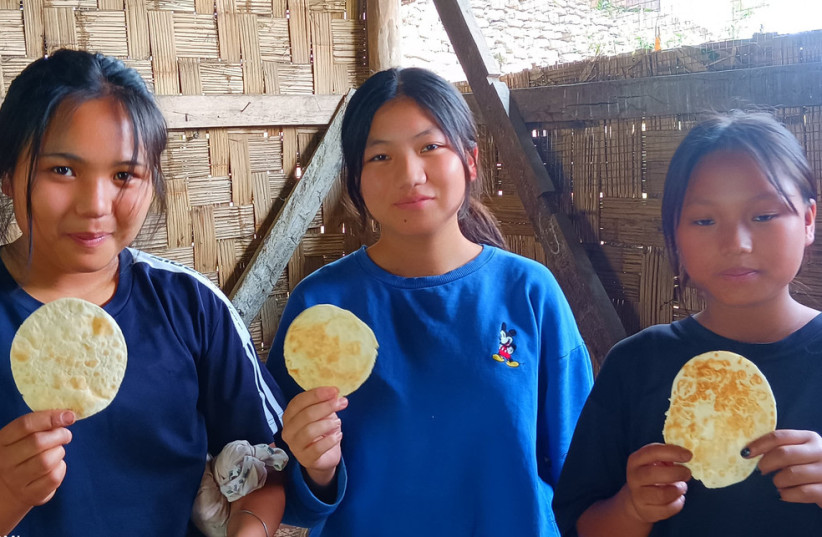In a quiet, remote region of Northeast India, members of the Bnei Menashe tribe have begun the time-honored ritual of baking matzah, as they ready themselves for the upcoming Passover holiday. This act is part of a series of Passover preparations that carry deep ancestral significance for the tribe.
Shavei Israel, an organization that has been instrumental in helping Bnei Menashe members migrate to Israel for the past twenty years, describes how the tribe preserves several ancient customs. These include the removal of leaven from homes and abstaining from its consumption during the holiday, as well as the traditional Passover sacrifice.
Additionally, the village's religious leaders engage in reciting a series of ancient prayers. Among these is the "Song of Miriam," a recounting of the Exodus story which details the liberation of their ancestors, the Menashe tribe, from slavery in Egypt, their journey across the Red Sea, and their ultimate arrival in Zion.
Michael Freund, the founder and chairman of Shavei Israel, reflects on the significance of these rituals: "Passover symbolizes the redemption of the Jewish people and thus resonates deeply with the Bnei Menashe," he said. "On Passover eve, thousands of Bnei Menashe in the remote areas of Northeast India will sit down to observe the traditional Seder, embodying the generations-old hope of leaving India to return to their ancestral land, the land of Israel."
Descent of the Bnei Menashe

The Bnei Menashe claim descent from the people of Israel, specifically as part of the Kuki-Chin-Mizo tribes from the states of Mizoram, Assam, and Manipur, located near the Myanmar border. Tribal traditions uphold that they are descendants of the tribe of Menashe, one of the ten tribes exiled from Israel in the 8th century BCE at the end of the First Temple period.
Today, their population is estimated to be about 5,000, with Shavei Israel having facilitated the immigration of over 5,000 Bnei Menashe to Israel in the last two decades.
Shavei Israel, a non-profit organization established in 2002 by Freund, a US immigrant, is dedicated to strengthening the bonds between Israel and Jewish diasporas worldwide.
The organization actively supports various groups, including the descendants of Anusim in Spain, Portugal, and South America; the Subbotnik Jews in Russia; the Jews of Kaifeng in China; hidden Jews in Poland; and the Bnei Menashe community in India. Further details can be found on the organization's website, www.shavei.org.
